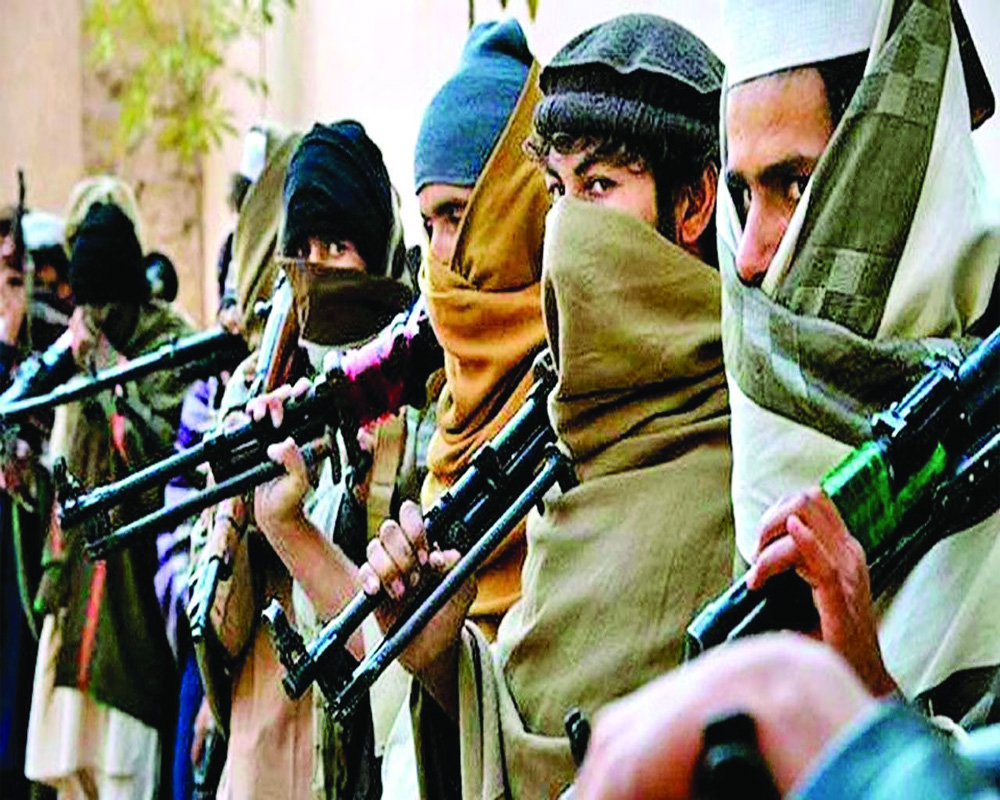Though Bangladesh's incumbent Awami League Government is taking strong action, Sheikh Hasina has a very serious challenge on her hands
On the face of it, any talk of Islamist terrorism posing a threat to Bangladesh or the latter becoming a global staging ground for it appears absurd. Things have been improving since the savage terrorist strike at the Holey Artisan Bakery in Dhaka on July 1, 2016, which left 20 persons (guests at the eatery), all five of the terrorists, two police officers and two members of the bakery’s staff, dead. According to South Asia Terrorist Portal’s Datasheet Bangladesh, from 132 in 2016, the number of deaths—including those of civilians, members of security forces and terrorists — from terrorism-related incidents declined to one in 2021 before rising to 18 in 2022 and 53 until June 11, 2023.
Though representing a rising trend, the figures since 2022 are lower than that in 2016. This has resulted from strong action taken by Bangladesh’s present Awami League government led by Prime Minister Sheikh Hasina. In its Bangladesh Mutual Evaluation Report, October 2016, the Asia/Pacific Group on Money Laundering (APG) says, “Bangladesh has made significant progress since the last Mutual Evaluation Report (MER) in 2009, reflecting political commitment and leadership on AML (Anti-Money Laundering) /CFT (Countering Financing of Terrorism).” It states, “Inter-agency work to assess TF (Terror Funding) risks shows strengths, but more work is needed to assess foreign TF threats, to further assess ML”. It also says that at operational levels “coordination and cooperation occur to a varying degree although recent reforms have sought to address identified issues, particularly between law enforcement agencies (LEAs).”
The Bangladesh government’s efforts to cleanse the educational institutions of those aligned with Islamist terrorist groups have been successful in some measure. It needs to be continued and extended to other areas. In Dr Abdul Gafur, Memorial Lecture titled Bangladesh Moulabader Arthaniti (The Economics of Fundamentalism in Bangladesh), delivered on May 21, 2005, Professor Abul Barkat of Dhaka University stated that fundamentalists used their political and economic power to place militant and communally-oriented members in strategic locations in government and NGOs. The ill-disguised military dictatorships of Zia-ur Rahman and HM Ershad that promoted Islamist fundamentalism during their and their proxies’ rule from 1975 to 1991, the Bangladesh Nationalist Party’s government with Begum Khaleda Zia as prime minister, which came to power in 1991 with the support of the fundamentalist Jama’at-e-Islami Bangladesh (now reincarnated as Bangladesh Jamaat-Islami), filled the administration with their supporters as well those of the fundamentalist Islamists they courted. It was the same with the BNP-Jama’at coalition government that ruled Bangladesh from 2001 to 2006. These elements have to be wrinkled out.
Since the 2016 attack, efforts by the Dhaka Metropolitan Police’s Counter Terrorism and Transnational Crime Unit, as well as Rapid Action Battalion’s (RAB) campaign in the countryside, has led to the liquidation of several terrorists and terrorist hideouts. The former, particularly, has been building up special counter-terrorism expertise. Intelligence gathering has improved. There, however, is still considerable scope for improvement.
In Bangladesh, its criticality has been enhanced by three factors. First, terrorist outfits remain. The latest to emerge is the Jamatul Ansar Fil Hindal Sharqiya (JAFHS), formed by former members of three banned militant organizations: Ansar Al Islam, Neo-Jama’at-ul Mujahideen Bangladesh, and Harkat-ul-Jihad-al Islami Bangladesh. The group, active since 2017, adopted its current name in 2019. It has been forging links with other terrorist organisations since then. In February 2023, RAB arrested 17 personnel of the JAFHS and three members of the Kuki-Chin National Front and recovered rifles, bomb-making equipment and other weapons.
Second, Islamist terrorists have been using the Internet and social media to win recruits and spread their fundamentalist doctrines. Bangladesh had 35 lakh Internet users in 2008. According to the Bangladesh Telecommunication Regulatory Commission, the number was 12.61 crore in March 2023. A report in Prothom Alo cites a report released by Facebook’s parent company Meta stating that at least two billion people in Bangladesh logged into Facebook at least once a day during December 2022.
Third, a keen watch has to be kept on the camps of Rohingya refugees from Myanmar, particularly those close to Teknaf, the river that constitutes the Bangladesh-Myanmar border. As Eric Hoffer’s insightful work, The True Believer, shows, criminals often tend to join fundamentalist mass movements in search of redemption and honourable images. According to reports, the Rohingya Solidarity Organisation has cooperated with the JMB on weapons and explosives training.
Finally, the fight against Islamist terrorism is fundamentally ideological. Hence, besides cleansing educational bodies, it is important to establish firm governmental control over the quami madrasas which teach around 1.4 million students in Bangladesh.
(The author is Consulting Editor, The Pioneer. The views expressed are personal)


























